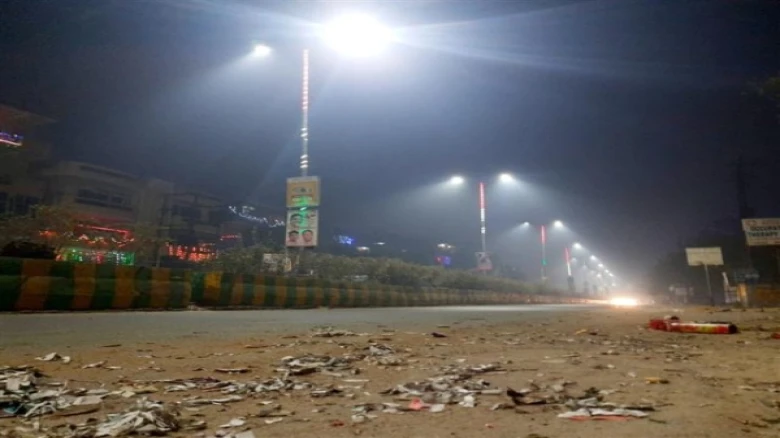Delhi Environment Minister Gopal Rai declared that bursting firecrackers in the national capital on Diwali will result in a six-month jail sentence and a $200 fine.
Digital Desk: As many in Delhi disregarded the municipal government's prohibition on them, a lot of loud firecrackers exploded throughout Diwali night on Monday.
Gopal Rai, the minister for the environment in Delhi, announced last week that setting off firecrackers during Diwali in the capital may result in a six-month prison sentence and a $200 fine.
Despite the official prohibition in effect, individuals began setting off fireworks around sundown in various areas of the city, including south and northwest Delhi. On the ground or in the air, loud firecrackers could be heard exploding.
And as the night went on, the volume of firecrackers escalated to levels that exceeded legal decibel restrictions, leading some people to ask "whether there was any prohibition at all."
Diwali firecracker-bursting is a long-standing custom, but authorities in Delhi claimed the decision to limit it was made after taking into account the environmental issues and health risks involved.
On Monday, a combination of increased stubble burning, firecracker use, and relatively unfavourable weather conditions caused Delhi's air quality to deteriorate to "extremely poor."
The 24-hour average air quality index (AQI), however, was still 312 and ranked second for Diwali in the previous seven years. On Diwali in 2018, the city had an AQI of 281.
The air quality is expected to worsen if this year's firework volume increases, experts worried earlier in the day.
Firecrackers bursting in midair could be heard in the evening at East of Kailash in south Delhi and other locations including Nehru Place and Moolchand. Every year, several locals light fireworks in their neighbourhood.
Despite the restriction being well publicised, many inhabitants of Burari still let off firecrackers.
Due to smoke from exploding firecrackers, several people reported having itching skin and burning eyes.
Reetu Nandan, a student who lives in south Delhi, stated, "I won't go outside tomorrow; I know what the air quality would be tomorrow." The manufacturing, storage, and sale of firecrackers in the city would be punished with a fine of up to 5,000 and three years in jail under Section 9B of the Explosives Act, according to Delhi Environment Minister Rai.
To carry out the prohibition, 408 squads had been organised.
The revenue department established 165 teams, the Delhi Pollution Control Committee 33 teams, and the Delhi Police 210 teams under assistant commissioners of police.
Many people let off firecrackers in the neighbouring cities of Gurugram and Faridabad as well.
On Monday, the air quality in Ghaziabad (301), Noida (303), Greater Noida (270), Gurugram (325), and Faridabad (256) was rated 'poor to extremely poor.'
An AQI of zero to 50 is deemed "excellent," 51 to 100 "acceptable," 101 to 200 "moderate," 201 to 300 "poor," 301 to 400 "extremely poor," and 401 to 500 "severe."









Leave A Comment